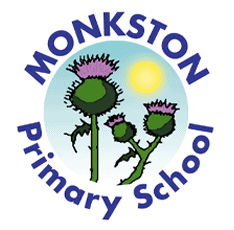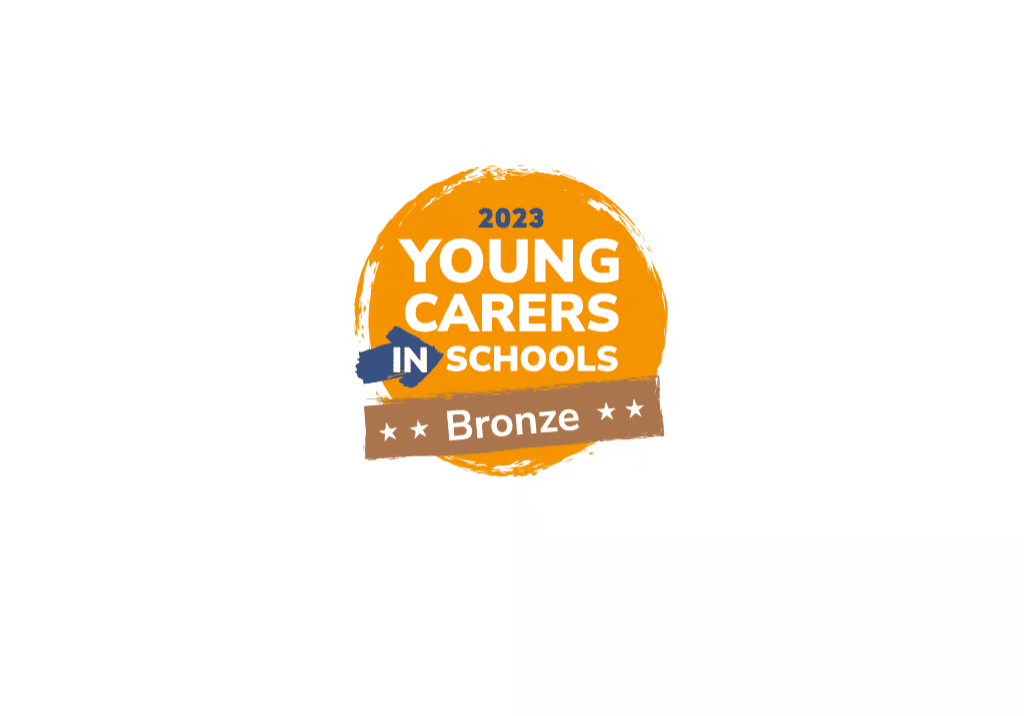Subjects
At Monkston Primary School, we aim to prepare our pupils for life in modern Britain by developing their skills and nurturing their interests. Our pupils leave Year 6 as caring, respectful and tolerant young adults, having fulfilled their academic potential and ready for the next step of their journey.
Curriculum Intent Document December 2024
Please click on the relevant year group below to see an overview of their curriculum.
Monkston follows the PKC art curriculum, which is knowledge-rich and is designed to enable children to learn by making connections between the work of artists, architects and designers (which they study critically) and their own work, which they evaluate and relate back to the works they have studied.
Units of work in the curriculum focus on the different concepts in art (line, shape, colour, tone, form, space, visual texture and tone) and how an artist combines these elements and produces art in different styles, for example realistic or abstract art. Pupils study different types of art including sculpture, architecture and painting within a range of artistic movements and historical periods.
Our curriculum celebrates diversity by recognising artists beyond traditional Western artforms and showcases art by those traditionally underrepresented in British art.
The computing curriculum at Monkston is designed to engage our pupils and promote an interest in many areas of computing: online safety, programming, presentation skills, digital literacy, use of networks and understanding data.
A clearly sequenced and progressive curriculum ensures that pupils not only build the computing skills they need, but develop a sense of excitement and curiosity for the subject. We develop pupils’ computing knowledge, conceptual understanding of how computers and the internet work, ability to work logically to assess problems they can debug and solve independently and to speak confidently about computing. Pupils consider the importance and impact technology has on the world and the uses of computing now and in the future.
The PKC DT curriculum aims to inspire students to think about the important and integral role which design and the creation of designed products play in our society.
The curriculum is split into three different areas: ‘cook’, ‘sew’ and ‘build’. It is designed so that each year group will complete a unit of work in these three different areas once a year.
Two different aspects of design are interwoven into the three areas of study: the environment and sustainability, and enterprise and innovation. These ‘aspects’ acknowledge enduring and contemporary concerns of modern design.
Each unit specifies the concepts and skills which the students are expected to learn over the course of a unit and these gradually progress throughout the course of the six years of study.
English teaching at Monkston is engaging, motivating and personalised. Writing is taught following a structured skills-based approach whereby every week, pupils will take an in-depth look at a text and create a piece of writing inspired by its content. Each unit follows a broadly similar structure: reading and discussing the stimulus and unpicking a WAGOLL (‘What a good one looks like’) for children to see what their end product may look like; practising skills after extensive modelling from the teacher; and a star write where pupils produce their final piece of writing to show-off their skills.
Throughout the week, teachers build a ‘working wall’ with their modelled examples, vocabulary and a writing checklist which will be referred to in every lesson. Grammar and punctuation form the basis of the skills that are taught throughout each unit.
Spelling is taught daily in Year 2-6 following the Spelling Shed scheme and where possible, is linked to pupils’ writing topics. Pupils are expected to practise their spellings daily by playing the games made available to them on the Spelling Shed website.
Monkston Writing Overview 2024-2025
Monkston Year 1 Writing 2024 -2025
Monkston Year 2 Writing 2024-2025
Monkston Year 3 Writing 2024-2025
Monkston Year 4 Writing 2024-2025
We believe that reading underpins the entire curriculum and have developed a whole-school approach to ensure this is at the heart of everything we do.
Phonics is taught daily throughout Foundation Stage and KS1. Using ideas and resources based on the highly successful ‘Read Write Inc.’ phonics scheme, staff equip pupils with the phoneme and grapheme knowledge from our complex language to enable them to decode and develop fluency and go beyond this to become accomplished readers.
Beyond Phonics, daily guided reading lessons teach comprehension and inference skills while reading a range of high-quality narrative and non-fiction texts. Our approach develops fluent and confident readers with a love of literature.
Every day at Monkston ends with teachers, from EYFS to year 6, reading a book with their class. Leaders carefully select texts that cover a range of themes and authors, but more crucially, we choose books that inspire, excite and promote a love for reading!
Reading in KS1
As well as learning to decode words and start to develop their fluency in phonics (see phonics sub-page), children at Monkston also participate in small group reading sessions with the teacher and whole class guided reading sessions.
In the small group reading sessions, the teacher listens to each child individually and uses this time to develop the children’s confidence, comprehension and inference. The teacher will also use this time to introduce the children to a wide variety of texts including fiction and non-fiction and develop the children’s vocabulary.
In whole class guided reading sessions, the children participate in ‘echo reading’ where the teacher models the skills of using expression and fluency in reading and ‘text marking’ where the children look through the text for clues (including punctuation) to help them with their fluency and expression. In addition to this, within the whole class reading sessions, the children learn to answer a variety of correctly challenged deduction and inference questions.
Daily story time usually happens at the end of the day, where the teacher shares a ‘class text’ with the children. Each term or half term, each year group has a ‘reading theme’. These themes can include specific authors, or PSHE themes, or curriculum linked themes. If you'd like to know the book, theme or author that your child is learning about/reading, keep an eye out for the year group newsletter that gets sent home at the start of every half term.
Daily story time follows a designated, consistent structure across EYFS and KS1 as outlined below:
- Monday – Read a story book that goes with the reading theme of the half term/term
- Tuesday – Rereading and ‘delving deeper’ into the linked story book/ reading another book by the author
- Wednesday – Reading a non-fiction or poetry book
- Thursday – Teacher’s choice (A chance for the teacher to model their own love of reading)
- Friday – Child’s choice (A chance to encourage the child’s love of reading by reading or re-reading their favourite story books)
Reading at home in KS1
The children in Monkston bring home two books from school; one reading book and one library book.
In reception and year 1, the children bring home Read Write Inc. book bag books which they can read to an adult or an older sibling. These books are closely linked to their individual phonetic knowledge. The purpose of these books is for the children feel confident reading something that they know they can read and to consolidate learning that they have done in school. These books are also sent home for some year 2 children.
In year 2, children will be sent home a book banded book to read to an adult or an older sibling.
All children get the opportunity to bring home a book from our library. The purpose of these books is to share and read together with people at home to develop enjoyment of reading. All classes visit the library once a week.
All children are given a reading diary at the start of each term which should be signed by an adult at home every time they read to an adult or an older sibling. If your child has read four times in one week, they will be given one Monkston point. Children can change their book on Mondays and Thursdays in KS1 and Reception; however, they must only change their book if they have read it twice. The purpose of this is that if younger children read the same story/book more than once, they will develop a greater understanding of what happens.
In KS2, whole class guided reading happens 4 times a week, with extra intervention where needed. The whole class guided reading sessions involve a range of teacher modelled reading, group and whole class echo reading and individual reading. We aim to listen to every child read aloud once a week to help develop children’s confidence, comprehension and inference. Using the texts studied, children then answer relevant questions which are tiered in difficultly. Each set of questions starts with several simple find and retrieve questions, which are accessible to all. These are followed by questions that match up with the yearly end of year expectation. At the end of each set of questions, 1 or 2 stretch and challenge questions are included for more able pupils (identified in blue). As well as focusing on improving the children’s comprehension skills, one of the main aims for all of our guided reading sessions is to broaden children’s vocabulary. This is achieved by encouraging children to identify unfamiliar words, which are then discussed and added to our ‘word walls’.
In addition to guided reading sessions, daily story time happens at the end of the day, where the teacher shares a ‘class text’ with the children. These texts have been carefully chosen with a clear rationale behind each one, ensuring we have included a range of genres, themes and authors across the whole of KS2. The aim of these daily sessions is to develop and nurture a love of reading. Copies of these class texts are provided for each class, so that children can continue to enjoy the books.
Reading at home in KS2
The children in Monkston bring home two books from school each week. The expectation is that children should choose 1 book that matches their reading colour and then one book for them to enjoy, either independently, or with an adult. If a child is a ‘free reader’, then they can choose 2 books of their choice. The expectation is that children are reading daily and that an adult is listening to them read at least 3 times a week. All children are given a reading diary at the start of each term, which should be signed by an adult at home every time they are listened to by an adult, or an older sibling. If your child has read three times in one week, they will be given one Monkston point. Children can change their books weekly during their class library session; however, children are allowed to keep a book for longer if they are still reading and enjoying it.
Daily Phonics Lessons
Read Write Inc (RWI) is a systematic phonics scheme which helps all children learn to read fluently and at speed so they can focus on developing their skills in comprehension, vocabulary and spelling.
It is taught in over 5000 schools in the United Kingdom!
What is Systematic Synthetic Phonics?
Phonics is the teaching of sounds in a certain order and the teaching of recognising the different spellings of each sound.
Phonics also teaches children to put these sounds together to read words. At school, we call this 'blending'.
Pure Sounds
It is very important that the sounds that the children are taught are pronounced correctly at home and at school. Avoid the 'uh' at the end of sounds like c and t. Please watch the video below to learn how to pronounce the sounds correctly.
Sound Order
Your child will be taught according to a prescribed, logical order of sounds/graphemes (the letters that make up the sounds) given by the Read, Write Inc. scheme.
- Set 1 (without using letter names)
- Set 2
- Set 3
- Additional Set 3
A full list of these sounds is attached below.
Parent video: How to say the sounds
Useful documents
List of rhymes to go with sounds.pdf
Red words by band bookmarks.pdf
RWI mnemonics sound mat digraphs and tri-graphs.jpg
French at Monkston is designed to develop resilience and enjoyment through an ambitiously planned scheme of work.
Through the Cave Languages scheme of work for French, pupils acquire language learning strategies for memorisation and retrieval as well as for listening, reading and understanding. They are encouraged to manipulate language to speak or write sentences using prior knowledge of grammar.
Pupils are taught the key sounds of the French language and their corresponding graphemes so that they can apply this knowledge when speaking, listening and reading aloud. The choice of vocabulary ensures exposure to all the key phonic sounds and the ability to build sentences using grammatical knowledge.
PKC’s knowledge-rich and carefully sequenced geography curriculum ensures that Monkston pupils know more and understand more about the world around them. This curriculum structure helps pupils to deepen their understanding of physical and human geographical processes, fostering curiosity and fascination for the world we live in.
Our rigorous approach, covering and going beyond the requirements of the National Curriculum, leaves nothing to chance, building geographical knowledge and understanding in a way that builds on children’s prior knowledge, allowing them to make meaningful connections and gain an understanding of how our world is connected.
Throughout our PKC history curriculum, children are exposed to ambitious content within lessons that has been highly specified and well-sequenced across the years from EYFS to Year 6. It supports children to acquire the knowledge, skills and cultural capital that they will need to become well-educated citizens of the future.
Through exciting and engaging lessons, pupils progress in developing key historical skills and acquiring new knowledge which not only challenges, but increasingly develops their ability to question the world around them.
Our history curriculum is designed so that children can see historical figures from different backgrounds that may be similar to themselves and this allows pupils to feel valued as individuals. We also contribute to the pupil’s spiritual development where possible. Within units of work, we provide pupils with the opportunity to discuss moral questions, or what is right and wrong, when focusing on significant people and periods in history.
At Monkston, we follow the White Rose Maths Scheme of Learning and their ‘Small Steps’ which ensures number is at the heart of the maths curriculum; time is spent reinforcing number skills to develop pupils’ competency, have and conceptual understanding and can build on these skills over their learning life. Our approach encourages mathematical talk, thinking and reasoning which allows them to delve deeper into concepts to secure a greater mathematical understanding.
When introduced to new concepts (or revisiting previous ones), children should have the opportunity to build their competency by following this approach:
Concrete – children should use concrete objects to help them understand what they are doing.
Pictorial – children should use pictorial representations, which can help them to reason and problem solve.
Abstract –children should be able to move onto an abstract approach using numbers and key concepts with confidence.
Year 1 White Rose Maths Overview
Year 2 White Rose Maths Overview
Year 3 White Rose Maths Overview
Year 4 White Rose Maths Overview
At Monkston, music education is guided by the innovative Sing Up scheme of work, which has been meticulously designed to enhance students' learning outcomes. This comprehensive approach fosters progression in fundamental musical techniques, enabling pupils to develop proficiency in various areas such as singing, playing instruments, and musical composition. Furthermore, the scheme exposes students to a diverse range of musical genres, enriching their musical knowledge and appreciation.
Through exploration of influential composers and their works, pupils gain a deeper understanding of the impact of music throughout history. As they progress, students cultivate a profound engagement with music, empowering them to compose original pieces and critically analyse live and recorded performances from diverse traditions and renowned musicians. Recognizing the importance of maintaining children's interest and focus during lessons, the Sing Up scheme incorporates highly engaging, stimulating, and interactive presentations. These lessons are complemented by the cheerful and enthusiastic teaching style of our dedicated music educators, creating a positive and inspiring learning environment that nurtures students' musical abilities and fosters a lifelong appreciation for the arts.
At Monkston Primary School, we understand the importance of PE and endeavour to provide a balanced curriculum that allows children to develop their physical skills and maintain a healthy active lifestyle from EYFS to Year 6. The school follows the PE Passport scheme of work which develops and builds a child’s physical skills and enables them to understand how these can be applied to particular sports. Pupils progress sequentially through the school developing skills and knowledge in performance, personal & social and competition.
Children in Year 5 take part in swimming lessons, which is a key part of the PE national curriculum. Additionally, we offer the children opportunities to participate in sports in our enriched curriculum, which has been provided through the Sports Premium funding. This includes having an outside specialist coach coming into school and working with all pupils. Children in KS2 who are selected to represent the school in events including cross country and athletics are then provided with weekly training sessions with the sports coach.
We use PSHE and Citizenship best practice to help develop the qualities and attributes children need to be healthy, independent and active participants in society.
Using the Twinkl Life scheme of work, we cover units on British Values, Global Citizenship, Personal Safety, Health, RSE and Mental Wellbeing to deliver outstanding SMSC provision. Our PSHE planning and resources are fully in line with the PSHE Association Programme of Study and meet the 2019 Draft Guidance for Statutory Relationships and Heath Education. Our PSED curriculum in EYFS develops self-confidence, making relationships and managing feelings and behaviours.
The RE curriculum at Monkston is designed to promote the spiritual, moral, social, cultural, mental and physical development and well-being of pupils, following the Milton Keynes Agreed Syllabus. In religious education, pupils acquire and develop knowledge and understanding of Christianity and the principal religions represented in Britain.
Our integrated approach is focused on three themes: believing, belonging and behaving. RE is taught so that pupils not only have a secure grasp of these three areas and the links between them, but also to ensure that pupils have an opportunity to make their own responses and reflections to the learning that comes from a study of each of these key strands of religious practice. Throughout Key Stage 1, the focus is on Christianity and Judaism. Throughout Key Stage 2 there is a focus on Christianity, Islam and Hinduism and other faiths and world views where appropriate.
The science curriculum at Monkston is designed to engage our pupils and promote an interest in three key areas of science: physics, biology and chemistry. Carefully sequenced lessons create a sense of excitement and curiosity for the subject. Pupils are encouraged to develop scientific knowledge, conceptual understanding, ability to work scientifically, think clearly and speak confidently about science.
We follow the White Rose scheme of learning which provides the full coverage of the national curriculum for science, as well as asking scientific questions around sustainability and the planet to help children develop an empathy for the local and wider environment.
EYFS Science Curriculum Overview
KS1 Science Curriculum Overview





